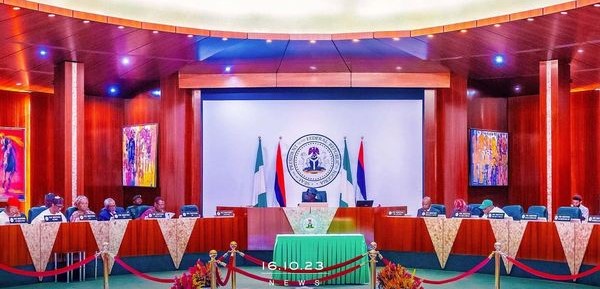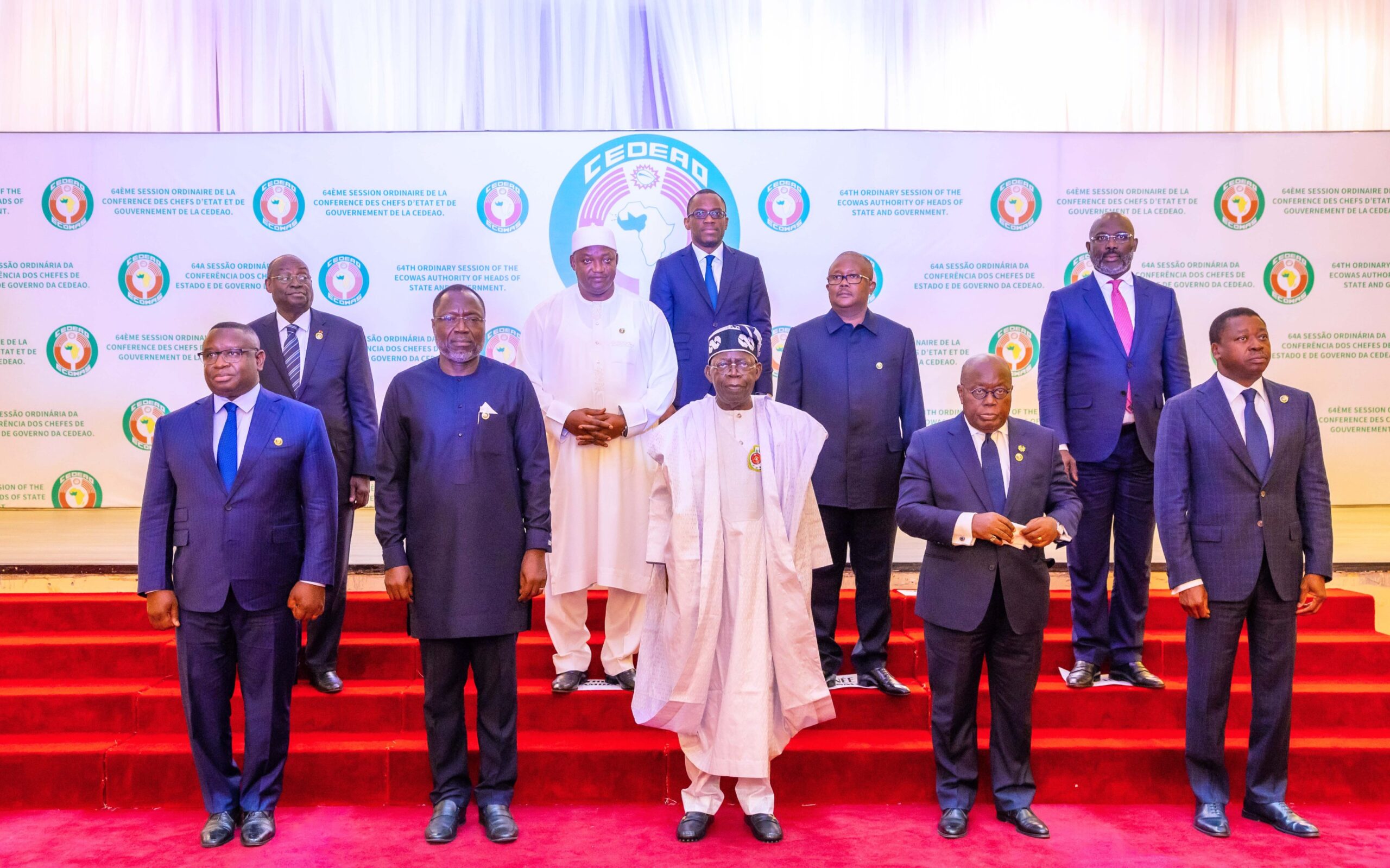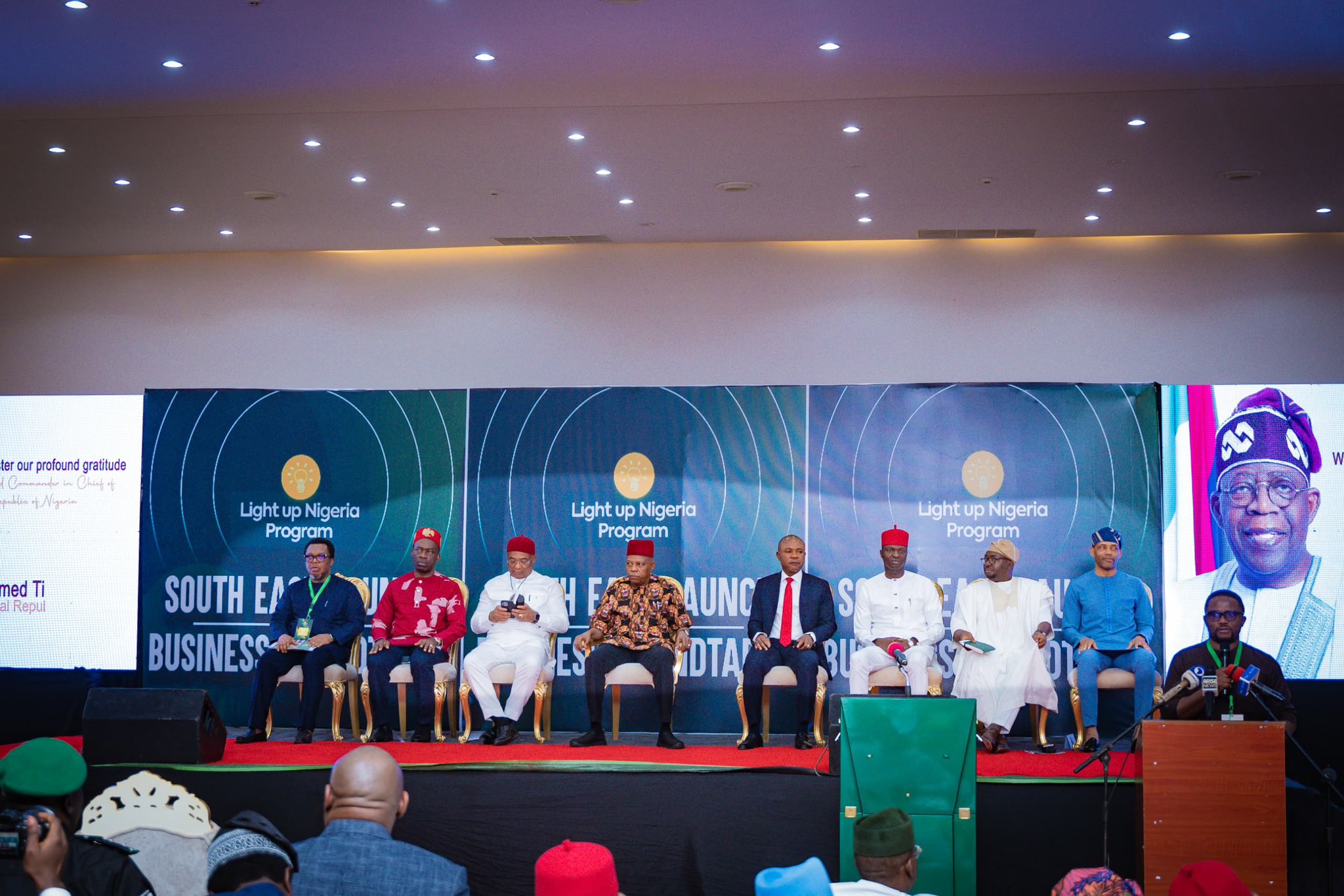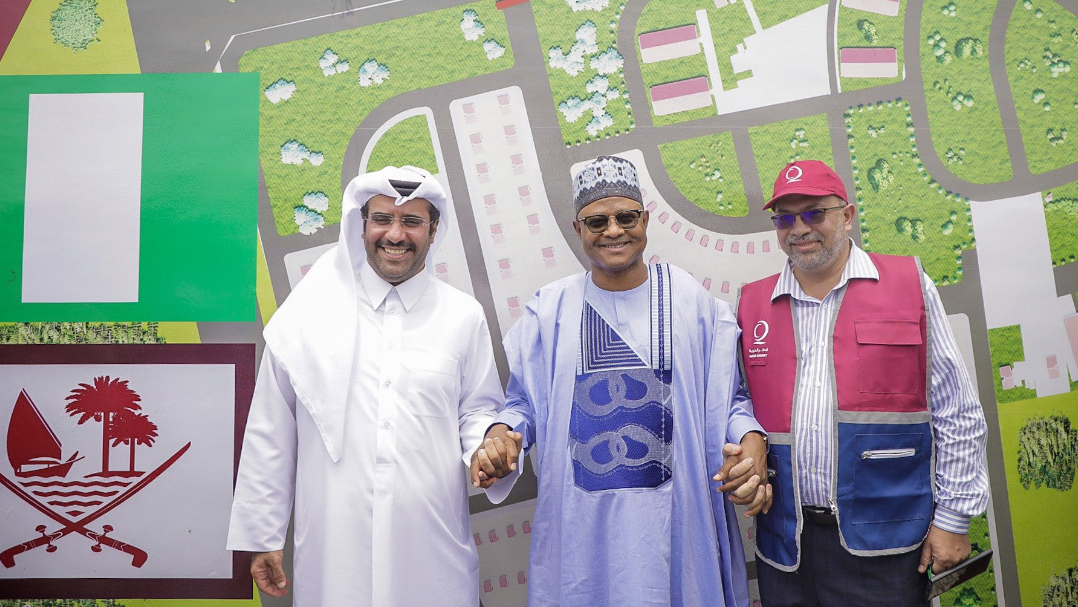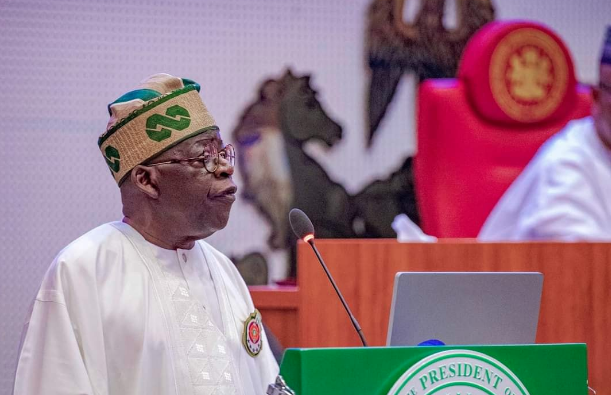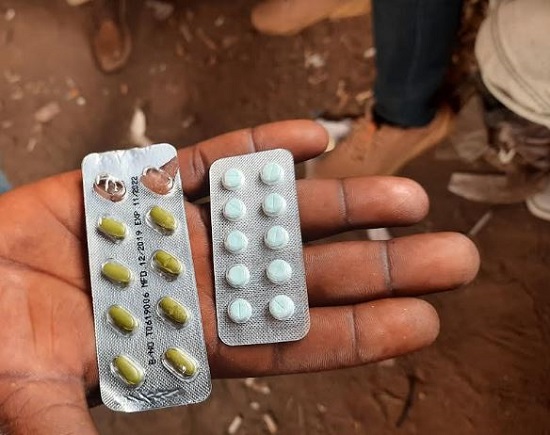“To reduce the pressure on the naira, the Economic and Financial Crimes Commission (EFCC) has raised a 7,000-man special task force across its 14 zonal commands to clamp down on dollar racketeers” (EFCC, 2024)
The rather absurd law enforcement approach to economic management, characterised by the above quote from the EFCC, exemplifies two majorsectoral policy objectives of the Tinubu administration, which seem to have come up short. Firstis on economic management, where the removal of subsidy on premium motor spirit (PMS), and the attempted harmonization of foreign exchange rate segments, were expected to make more funds available for governance, reduce public debt,reduce interest rate to spur investment and unify foreign exchange (FX) market rates at a converged rate of N550-N600/US$1. Second, is in thesolid minerals sector, where the appointment of a close associateof President Tinubu as Minister of Solid Minerals, was expected to increase the contribution of the sector to gross domestic product (GDP) from 0.63 percent to 50 percent. That the expected policy outcomes have run into serious headwind, suggest not a lack of good intention, but perhaps, the need for more comprehensive political economy analysis, in the public policy process.
Before going into the details of the policy headwinds, it is important to understand what political economy analysis (PEA) entails. For policy makers, PEA would involve comprehension of dominant political and economic patterns in the country or environment of interest, with detailed understanding of the relationships, motivations and distribution of power between the different blocs, individuals and groups that contest for power and influence in a society. The outcomes of such analysis support the development of policies that are more politically practicable, and as such,more feasible to implement, with viable goals, practicable timelines, an understanding of the risks, and development of mitigations for identified risks.
On subsidy removal,FX reforms and other macroeconomic policies, the outcomes have been a near opposite of what was expected. The International Monetary Fund (IMF), independent petroleum marketers and energy economists, have strongly argued that contrary to the official position of government on PMS subsidy, after subsidy removal on May 29, 2023 led to an increase in its litre price from about N250 to about N700, the government is still subsidizing petrol prices, thereby impacting public finance provisions for other development needs. On FX policies such as for FX liquidity and market rates convergence of N550-N600/US$1, the situation of adverse outcomes hasbeen the same, as there has been inadequate FX liquidity, while the estimated FX market rates convergence of N550-N600/US$1 has not only been off mark with official rate of N1,500/US$1, but a divergence of rates still existing, with N1,700/US$1 at the parallel market.
Advertisement
The response of government to these missed policy targets, further underscores the importance of PEA in policy making. There has been incoherent relationship in the petroleum downstream sector due to the subsidy situation, as government has been the sole importer of PMS- contrary to policy goals. The inability of some government-owned refineries to commence actual refining of PMS, has also been attributed to a number of factors. On the FX situation, the government has blamed domestic and international speculators, economic saboteurs and illegal operators for the inability of its FX policies to achieve the desired results. This has led to the absurd situation, where security agencies such as the State Security Service, EFCC and Office of the National Security Adviser (ONSA) have become actively involved in monetary policy implementation, with the EFCC deploying at least 7,000 law enforcement personnel.
From a PEA perspective, were the activities of speculators and saboteurs not anticipated, and planned for? Also, the removal of petrol subsidy and attempting FX market unification at close periods, amount in principle, to a structural adjustment programme. A PEA for such adjustment programme would have highlighted the need for secured intervention funding,probably from agencies such as the IMF, to ensure that the official FX market is well funded, in a manner that would have prevented the current untoward situation. Such analysis would have also emphasized the need for the country’s economic management team to include more individuals with significant networks and experience in the international economic system, who will be able to calm the markets, reassure investors, and attract new investment. Adopting proper PEA would have also made essential,consultations with renowned economists such as Dr. Kalu Idika Kalu, given his considerable experience on the political, social and economic factors that are required for successful structural adjustment programmes (SAP). They include his successful experience as a World Bank Country Economistfor East Asia and Pacific, comprising South Korea, Taiwan, Hong Kong (Asian Tigers) and Japan between 1972-80, and his mixed result experience as Federal Minster across different ministries in Nigeria.
For the solid minerals and mining sector, Dele Alake, the Minister of Solid Minerals had on September 3, 2023, unveiled an ‘Agenda for the Transformation of the Solid Minerals for International Competitiveness and Domestic Prosperity’. This policy agenda is expected to increase the sectors contribution to Nigeria’s $440bn GDP from 0.63 percent to 50 percent, while also creating the Nigerian Solid Minerals Corporation, enabling Joint Ventures with Mining Multinationals, providing Big Data on specific seven priority minerals and their deposits, giving a 30-day grace for illegal miners to join artisanal cooperatives, establish a Mines Surveillance Task Force and Mine Police, comprehensively review all mining licenses, and create six Mineral Processing Centres to focus on Value-Added products. Just weeks after, at a parliamentary event on Dec 12, 2023, the minister lamented to lawmakers that influential Nigerians were responsible for illegal mining activities that have led to lost revenue and insecurity. He also added that the sector lacked formal structures to attract multinational investment, while there were institutional bottlenecks that have hampered sectoral investments of over $700bn.
Advertisement
As highlighted on the economic management policy, a proper PEA of Nigeria’s solid minerals sector, should have emphasized the challenges the minister raised about the sector, before unveiling the policy on September 3, 2023. The analysis would have shown the role and structure of illegal operators, as well as institutional impediments, for sufficient preparation on how to address them. It is commendable that the federal government has established the Presidential Inter-Ministerial Committee on Securing Nigeria’s Natural Resources on January 17, 2024, in response to the security concern in the minerals sector. The inter-ministerial committee chaired by the Minister of Solid Minerals Development, held its maiden meeting January 25, 2024. Though commendable, there are projected concerns that making such pronouncements before acting, means that the crucial element of surprise in security attacks is lost, and will make such powerful operators, who may also have foreign backers, double down on their resolve, and device new strategies that may make it difficult for the committee and the country’s security agencies to resolve the structural challenges in the sector.
With a comprehensive PEA of Nigeria’s solid minerals sector, the domestic and international factors responsible for illegal mining, as well as its relationship with insecurity in the country and sub-region,would have been highlighted, with a proactive comprehensive policy response. The international angle of the challenge could have necessitated the need to draw lessons from other climes, with international advocacy on the linkage between illegal mining, foreign actors and state fragility. Such advocacy can lead to an internationally accepted ‘blood lithium’ or ‘blood gold’ problem for Nigeria, similar to the ‘blood diamonds’ challenge. This could then enable a process similar to the Kimberley Process Certification Scheme (KPCS) established in 2003, after a United NationsGeneral Assembly (UNGA) resolution 55/56 arisingfrom the ‘Fowler Report’, that sought to prevent conflict mineralsfrom entering the mainstream market. Similar to how KPCS led major countries such as US and Canada to ban import of conflict diamonds, perhaps an ‘Alake Report’ on the challenge in Nigeria, with support from Nigeria’s Ministry of Foreign Affairs, could facilitate a UN process similar to KPCS, where major countries ban the importation of illegally mined and insecurity enabling minerals from Nigeria.
Blockchain technology and other supporting measures can be deployed for the tracking and accountability of solid minerals from Nigeria. The global geopolitics among major power blocs on insecurity in West Africa, should increase the feasibility of such proposition from Nigeria. Such proposition can also be aligned with the ‘4D’ foreign policy of the current administration, as unveiled on December 11, 2023 by Yusuf Tuggar, Nigeria’s Foreign Affairs Minister.The Development arm of 4Ds is a strategic policy fit, as addressing foreign arm of mineral mining becomes a part of policy. That President Tinubu alluded to the activities of foreign companies in illegal mining in his speech at UNGA 2023, provides additional fillip to this proposed policy fit.
To validate the contribution of PEA to policy success, the very important public health insurance provides an example. Though health insurance was first discussed under the tenure of Dr. Moses Majekodunmi as Health Minister in 1962, the bill for health insurance he introduced in parliament for Lagos, failed. Vice Admiral Patrick Koshoni in 1984 and Dr. RansomeKuti in 1992, were some of the other Ministers of Health, who made efforts at introducing a public health insurance scheme in the country. It however took the appointment of Prof. Eyitayo Lambo as minister in 2003, by President Olusegun Obasanjo, for the National Health Insurance Scheme (NHIS) to become operational on June 6, 2005. Prof. Lambo, who is an economist, but had extensive experience with the World Health Organisation, deployed the extensive political economy knowledge he had of the health sector, as well as health insurance, to get President Obasanjo to provide him with not just the necessary approvals, but also the required support to overcome the political economy challenges that emerged, in his drive towards establishing the very important NHIS.
Advertisement
But this is not to say that those with extensive PEA experience may not get things wrong, though the experience and knowledge matters. Dr. Kalu Idika Kalu is on record as explaining that the reforms known as SAP, were not implemented as envisioned. Given his successful experience in similar adjustment policies in then developing South Korea, he may have underestimated some of the other political factors. Perhaps, his knowledge of Nigeria that included the ability of Western Nigeria Television Service of Western Nigeria government, to launch the first terrestrial television broadcast signals in Africa on Saturday October 31, 1959- even before some major European countries, and the fact that Eastern Nigeria’s regional economy was recognised by the World Bank as the fastest-growing globally in 1964, may have convinced him of the suitability and discipline within Nigeria’s government, to enable the successful implementation of SAP as originally envisioned. Perhaps, the political changes and their implications for economic policy between Nigeria’s first republic, and third republic, were not fully appreciated.
With better understanding of the role of PEA in the success of public policy, it will be interesting to know how much, if any, that political economy considerations are factored in, in assessing the implementation of public policy by government officials.
The Special Adviser to the President on Policy Coordination, HadizaBala Usman, who leads the Policy Coordination, Evaluation, Monitoring, and Delivery Unit in the Presidency, had on October 17, 2023, spelt out the methodology with which the performance ofministers in the implementation of government policies, will be assessed. It is essentially an alignment of deliverables with key performance indicators (KPIs), with the deliverables also aligned with the provisions of the 2024 budget. This assessment framework of deliverables, KPIs and budgetary provisions, does not show whether PEA considerations are factored in, andif not, how for example the insecurity that has affected projections for the solid minerals and mining sector will be explained?
Given the socioeconomic condition of contemporary Nigeria, attaining policy success is of utmost importance. The inability of FX market rate segments policy, petrol subsidy removal and solid minerals policies to meet the desired objectives, shows that‘good intentions are simply not enough’. It is therefore important for politicians, government officials and public administrators involved in the development, implementation and assessment of public policy, to increasingly factor political economy analysis and projections, in the public policy process. There is also the need for more extensive political economy capacity building within Nigeria’s public policy ecosystem, for increased public policy success. The academia, think tanks and training institutions such as the Nigeria Institute for Policy and Strategic Studies and Public Service Institute, should lead the charge in this regard. With better PEA knowledge in public policy, Nigeria’s path to sustainable development has higher chances.
Advertisement
Dr. Uwanaka writes from African University of Science and Technology, Abuja. [email protected]
Advertisement
Views expressed by contributors are strictly personal and not of TheCable.
Add a comment

